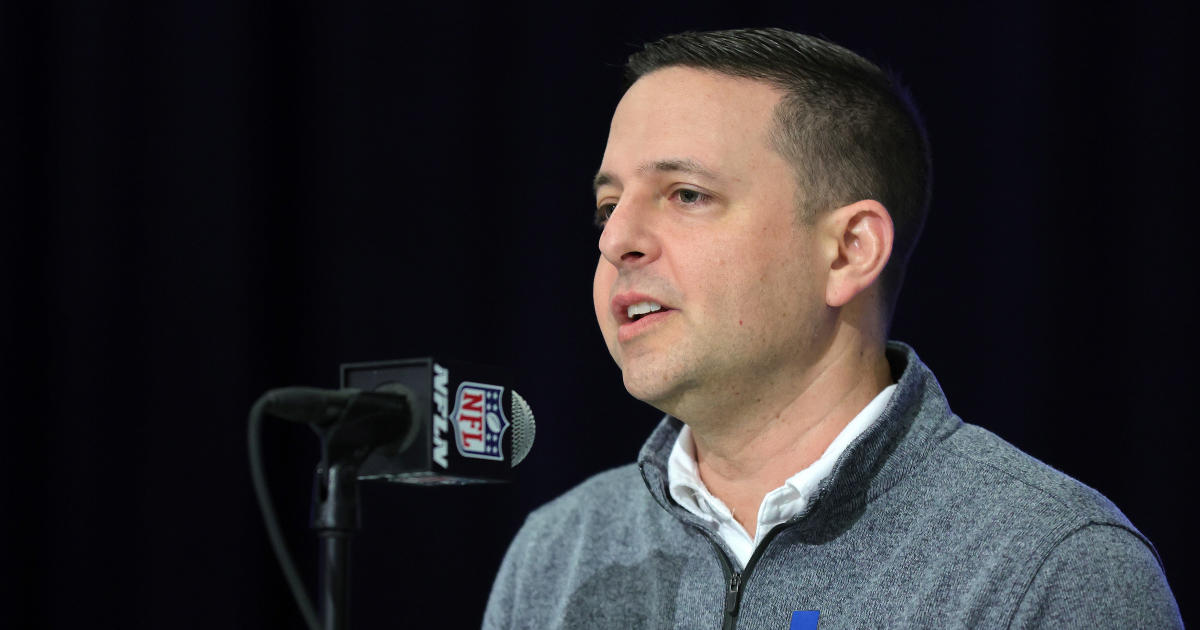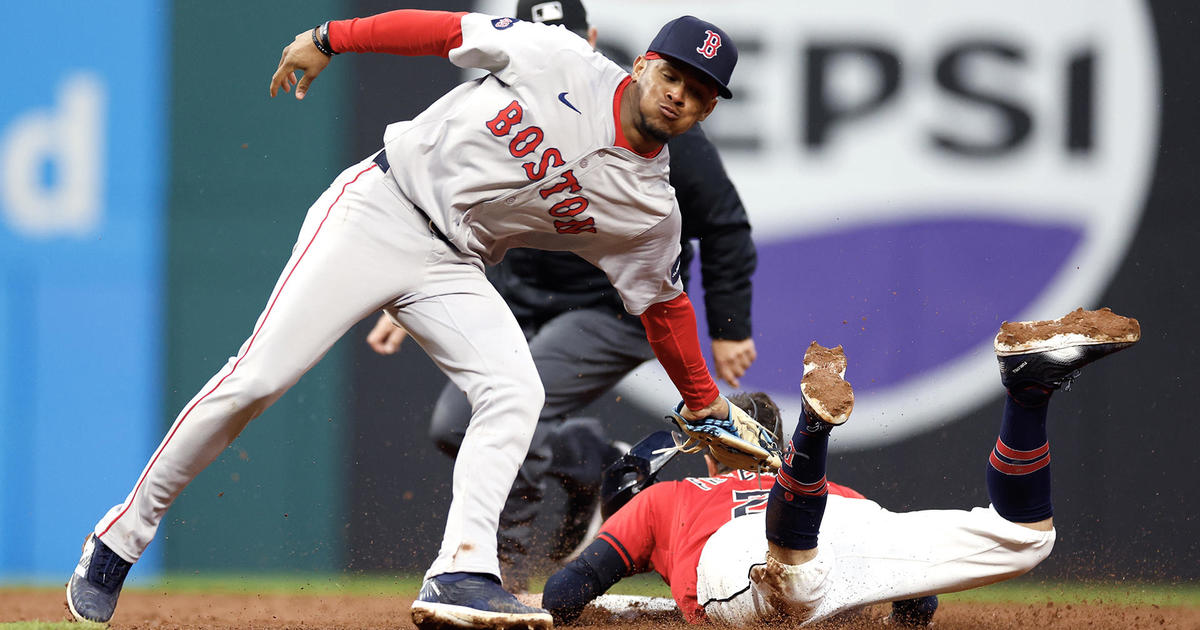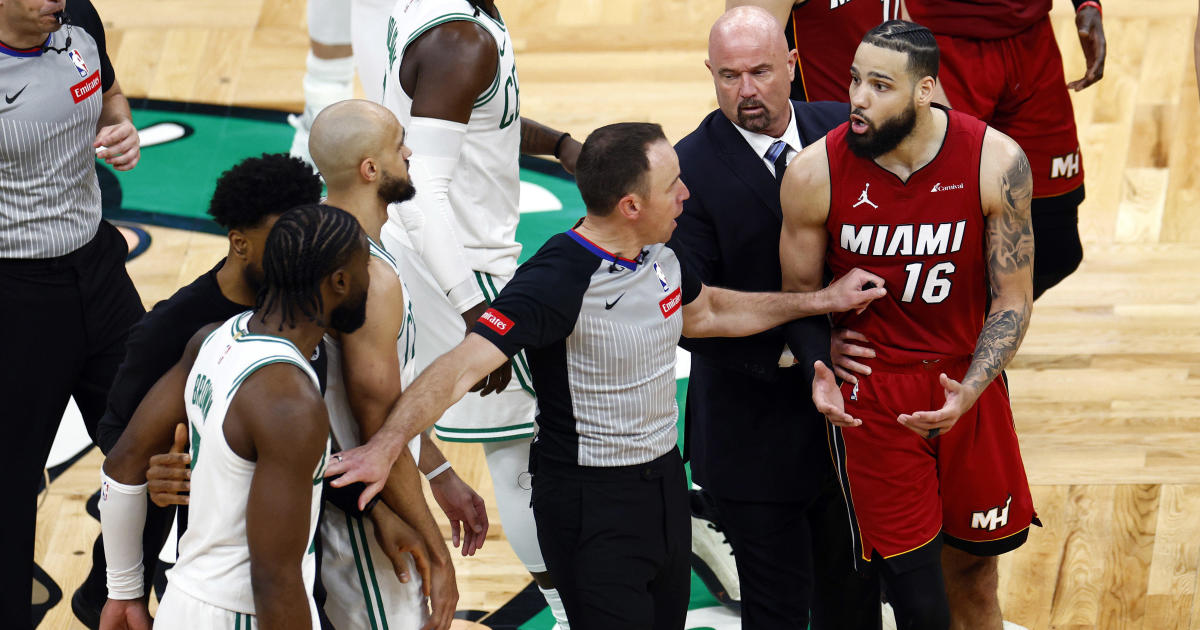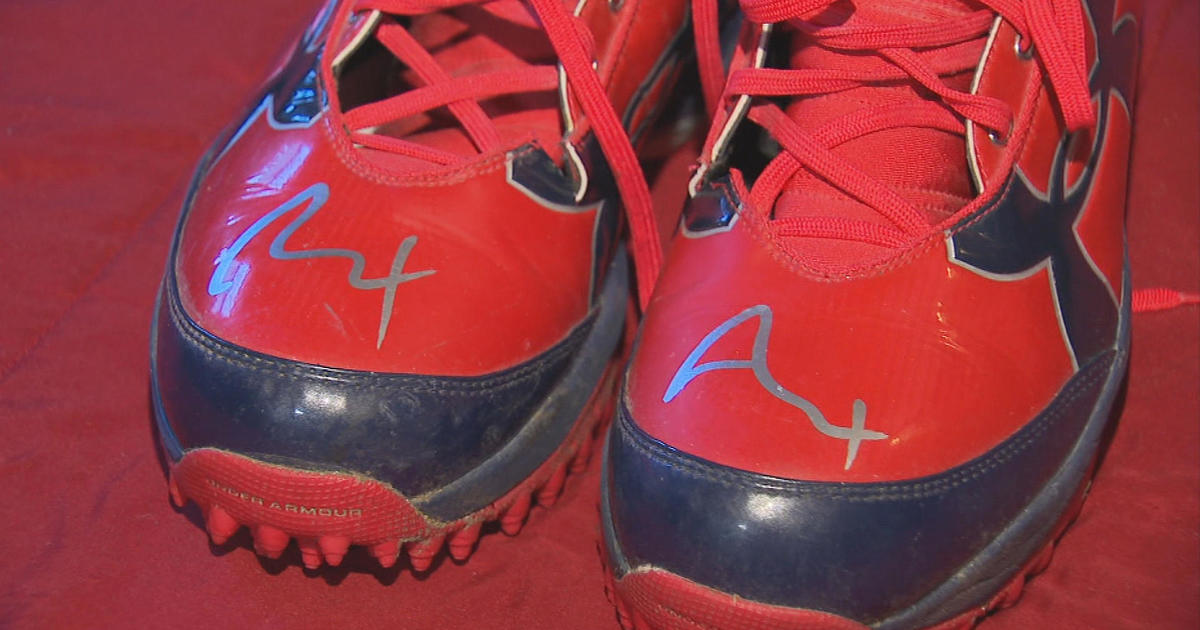Takeaways From Transcript Of Tom Brady's Testimony
BOSTON (CBS) -- Late Tuesday afternoon, the NFLPA released the entire transcript of the June 23 appeal hearing for Tom Brady. Considering this move came very shortly after Judge Berman informed both the NFL and NFLPA that documents would not be kept under seal, it's fair to surmise that the union was more than happy -- perhaps even eager -- to release the transcript for public consumption.
And the reason was clear. Time after time after time, Tom Brady denied, under oath, having anything to do with any plan to deflate footballs for the AFC Championship Game, knowing anything about anybody else deflating footballs that night or ever taking one step in his 15-year career toward manipulating the air pressure within footballs.
It's a long document -- roughly 456 pages of 25 lines apiece -- and not everybody has the time to read it from front to back. With that in mind, here are the major takeaways from the opening parts of the transcript.
Opening Statements
Jeffrey Kessler's opening statement essentially follows the same track as the eventual 51-page filing with the Minnesota court system from late July. It focuses mainly on the lack of notice that any punishment on the level of a four-game suspension was on the table for Brady as well as the lack of any player's awareness of the Competitive Integrity Policy.
The NFL's opening statement, made by attorney Daniel Nash, came across much like that of a prosecutor. He notes that the NFL may call witnesses as "rebuttals" to whatever Kessler presents, he defends the integrity of the Wells report by calling it "truly independent," he says there can be "no debate" that the Patriots' footballs deflated at suspicious levels, he deems the incident with Vikings ball boys heating up footballs on the sidelines as "minor" while saying the Patriots' alleged activity is much more serious, and he ultimately spent his time telling commissioner Roger Goodell that commissioner Roger Goodell made the right decision back in May.
It was, in a word, bizarre. But that's how everything has been in this saga, hasn't it?
Tom Brady's Interview
Kessler interviewed Brady first. The most important part of this interview is the fact that, as previously stated, Brady categorically denied having anything to do or knowing anything about any deflation of footballs after the referees' inspection. Further, he vouched for John Jastremski, saying that if the assistant equipment manager said he didn't do anything, then Brady has no reason to doubt him.
--It's worth noting that denying all involvement while under oath is more powerful than anything the NFL has provided. He made these denials no fewer than 50 times when asked directly.
--Here's the disturbing part: Lorin Reisner conducted the cross-examination on the part of the league. Lorin Reisner is a partner at Paul, Weiss, the firm paid millions of dollars by the NFL to conduct the "independent investigation." Reisner's name is on the front page of the Wells report. He answered questions from the media on Ted Wells' conference call back in May. Yet he was assigned -- and paid -- by the NFL to conduct this cross-examination of sorts. How, exactly, does that speak to the independence of the investigation?
--Brady stated that he was "very pissed off" after the Jets game in Week 7, because the balls ended up being set at 16 PSI. It was after that game that Brady claims to have learned the NFL's rule about balls being allowed between 12.5 and 13.5 PSI. He said, under oath, that he never knew of that rule prior to Week 7 of the 2014 season.
--Roger Goodell is unfit to serve as an arbitrator. He interrupted questioning several times, seemingly to remind everyone else in the room that he was still there. He also didn't know basic facts to the case, such as where that Week 7 game vs. the Jets took place. He stated at the start of the proceedings that he is not a lawyer. Perhaps if the commissioner of the world's most lucrative sports league wants to be so litigious, he should have some legal background.
--When discussing Brady's practice of destroying his cell phones, Goodell asked, "Does it run out of time?"
--Reisner, much like Nash, acted very much like a lead prosecutor. He dropped phone records in front of Brady and peppered him with the same questions over and over again, trying to get Brady to crack. It was a very intense line of questioning -- one that stretched far beyond what could be considered a "rebuttal" to the Kessler's exchange with Brady.
--Brady was very well-coached for this, and it's clear that is where Kessler earned his money. There were a number of questions that went along the lines of, "What did you talk about during this conversation?" Brady responded regularly with "I don't know." Other questions, he answered with, "It's possible, yes."
--Brady being so well-coached explains why neither John Jastremski or Jim McNally could have been called as witnesses. There likely wasn't enough time to get all three guys ready for this process.
--The testimony, yet again, proved Roger Goodell to have lied. (Credit to Doug Kyed of NESN for first getting this out there.) He wrote this line in his ruling to uphold his suspension last week:
Goodell also wrote:
"The evidence reflects that, after having virtually no communications by cellphone for the entire regular season, on January 19, the day following the AFC Championship Game, Mr. Brady and Mr. Jastremski had four cellphone conversations, totaling more than 25 minutes, exchanges twelve text messages, and, at Mr. Brady's direction, met in the 'QB room,' which Mr. Jastremski had never visited before. ... Mr. Brady testified that he was unable to recall any specifics of those discussions and he suggested that their principal subject was preparation of game balls for the Super Bowl."
The intimation is that Brady did not acknowledge awareness of the reports about football deflation, which would be a ludicrous claim. Yet the transcript includes many, many instances of Brady saying that he and Jastremski discussed at length the accusations that were public at the time of their conversations. Yes, they talked in detail about Super Bowl ball preparations, considering the team needed to prepare about 100 footballs compared to the normal 12 or 24, but Brady did acknowledge that he had conversations with Jastremski about the reports of deflation at that time.
The fact that Goodell mischaracterized Brady's behind-closed-doors comments is not altogether surprising, considering he did the same exact thing to Ray Rice. But you'd think he would've learned by now that it never pays to try to deceive the public.
This only covers the portion of the hearing when Tom Brady was interviewed. On Wednesday, we'll have complete analysis of the full transcript, as well as the pieces of evidence submitted with it.
Read more from Michael Hurley by clicking here. You can email him or find him on Twitter @michaelFhurley.




